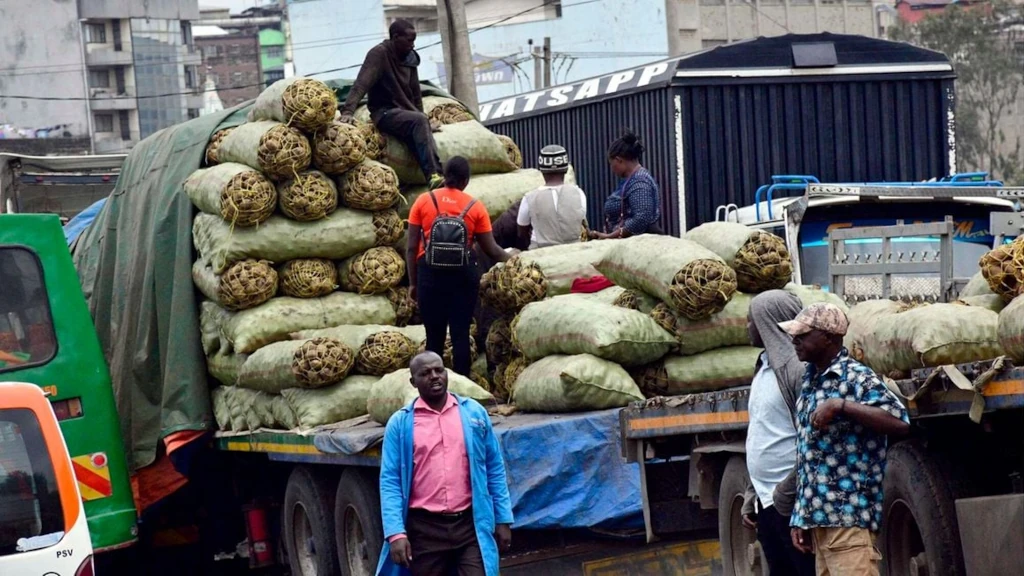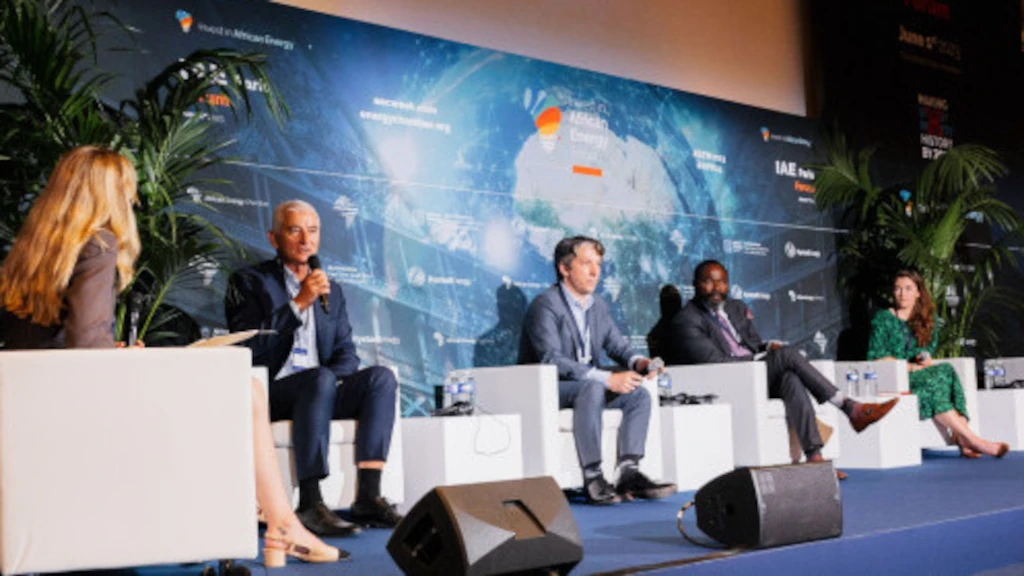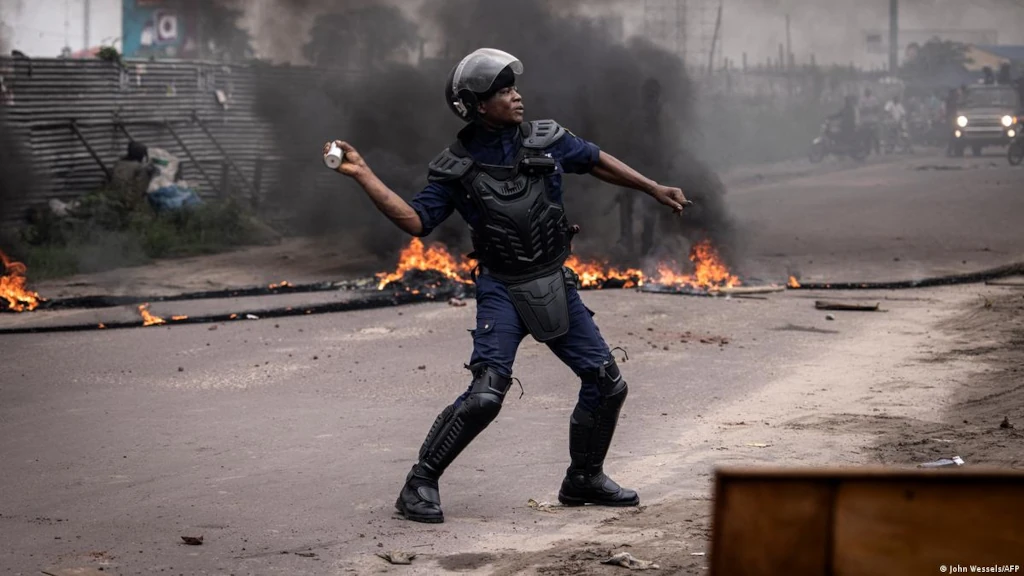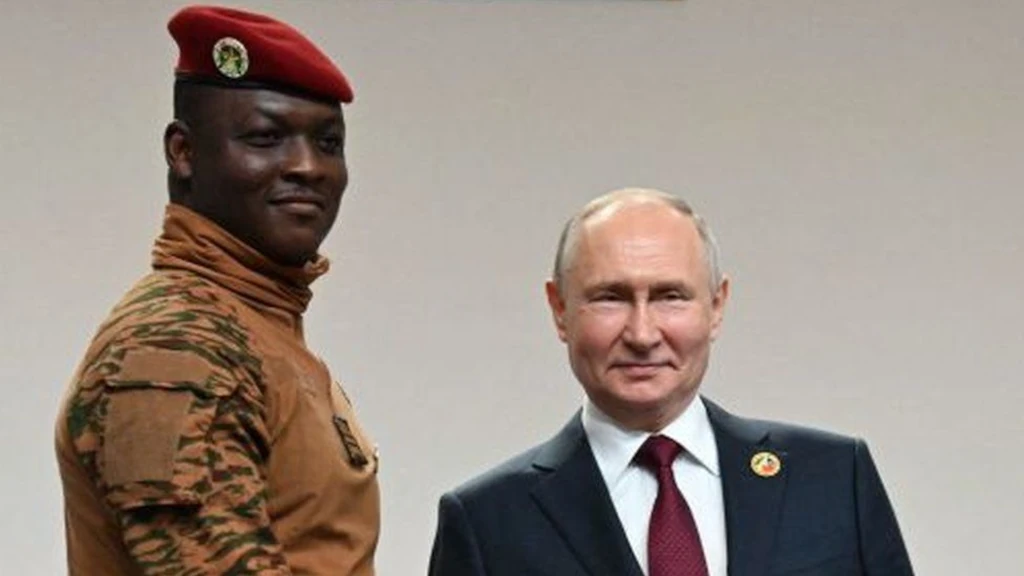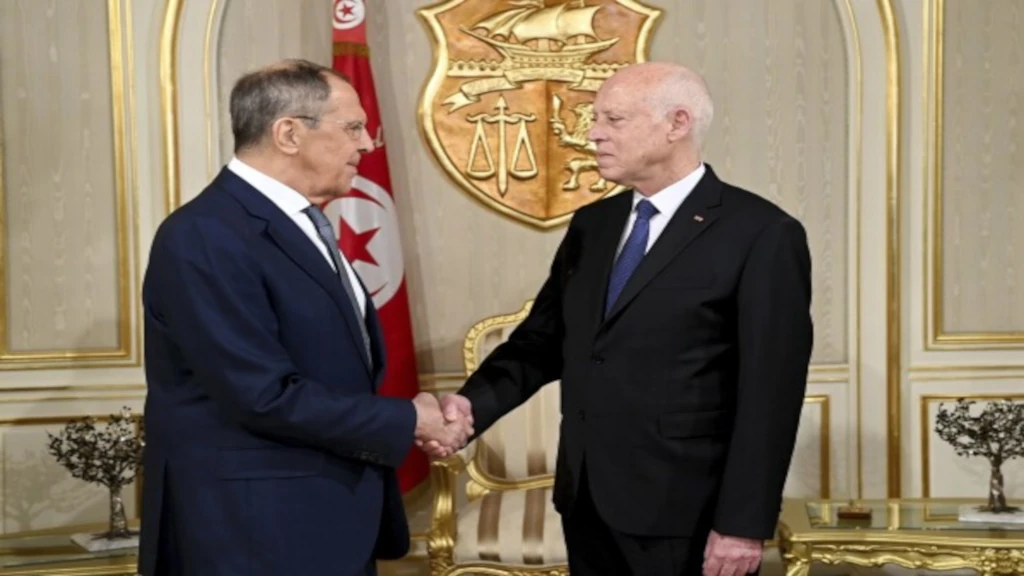Potato traders wait for traders for the valuable commodity outside Mwariro Market located along Ring Road in Nairobi, Kenya on April 11, 2023. PHOTO | FRANCIS NDERITU | NMG
As Kenyans continue to struggle with high unemployment levels, rising cost of living and faltering businesses, traders importing good from their market were all smiles as the falling shilling assured them better deals.
The Kenya shilling lost roughly 16.7 percent against the Uganda shilling since June 2023, driven by surging appreciation of the US dollar against it, and a wave of market correction among financial traders concerned about the latter’s overvalued position in the forex market.
The dollar has strongly rallied against the Kenya shilling for nearly six months —a development that saw the greenback rise from an average exchange rate of Ksh125 against in the first quarter of 2023 to a record high of Ksh155 posted in November.
On the other hand, the Uganda shilling has held steady against the Kenya currency, posting an average sell rate of Ush25 since July, compared with Ush30 recorded in January 2023. This trend has translated into notable currency gains for local importers but also raised questions about spill-over benefits for Ugandan customers.
“Some products in the Kenyan market have been discounted as well, because of low consumer demand. Though we have realised strong financial savings from this situation, I’ve told my fellow traders to put those savings aside for a rainy day instead of passing them on to customers straight away. It is always easy to cut product prices during good times, but it is very difficult raising prices in a tough economic situation.”
Buying dollars in Uganda
Mr Wadada said businesspeople from Kenya, Tanzania and Rwanda are expected to flock to Uganda to buy dollars in January because of the scarcity in the region, and this may cause fresh depreciation pressures against the Uganda shilling and potentially wipe out the savings realised by local importers.
“Nonetheless, stable fuel supply patterns between Uganda and Kenya of late have helped maximise some of the currency savings enjoyed by Ugandan importers who buy goods regularly from Kenya,” Wadada added.
Read: Ugandans flock to Kenya for holiday shopping
The high taxation and living costs experienced in Kenya have also impacted Kenyan citizens living in neighbouring countries.
30pc drop
“Anyone who lives in Uganda and is paid in Kenya shillings is losing about 30 percent of their pay in currency depreciation-related costs. But those of us that earn in either Uganda shillings or US dollars and live in Uganda are fairly shielded from that problem,” said John Chihi, a Kenyan professional working in Kampala.
“Those selling real estate in Kenya but live in Uganda are also likely to lose about 30 percent of their money through currency depreciation costs if they choose to value their property in Kenya shillings.”
“The combination of big price increases on various items sold in Kenya and currency depreciation have raised the cost of living for everyone. I used to spend about Ksh5,000 ($32) on my son’s upkeep per week, but I now spend Ksh12, 000 ($77.8) per week, because of various product increases and tax increments applied on many goods and services in Kenya today,” Mr Chihi added.
In Tanzania, cross-border traders in fresh food, especially in the north, say the weakening of the Kenyan currency has impacted their business.
The Bank of Tanzania (BoT) foreign exchange rates published on December 14, 2023 showed the Kenyan shilling exchanging at 16.2 to the Tanzania shilling, from the previous Tsh22 earlier in the year.
Economics lecturer at the University of Dar es Salaam Prof Humphrey Moshi said the supply and demand chains between Kenya and Tanzania would be affected by the weakening Kenyan currency. Shared essential services such as education and health have also become expensive for both Kenyans and Tanzanians.
Zanzibar President Dr Hussein Mwinyi was quoted in an officla statement saying the value of trade between the two nations in 2022 had reached $800 million.
“Due to the good relationship and co-operation that exists, our two countries have also been able to benefit economically, especially in the fields of trade and investment,” he said.
Source: The East African, 31st December 2023
 afric-Invest
afric-Invest